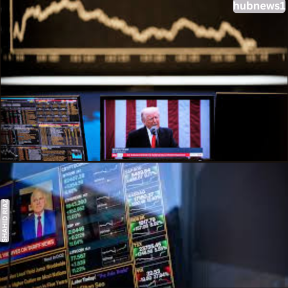
dow futures now,Latest on Trump’s presidency as markets rebound on tariff pause
International powers have welcomed the decision by US President Donald Trump to suspend tariffs on most of the world, but uncertainty remains in abundance.
Here’s an overview of some of the response:
France: The Trump administration’s move to delay tariffs for 90 days is “the beginning of the comeback of economic sense,” the governor of the Bank of France said. But he added “two bad ingredients in the American salad” still linger: unpredictability and protectionism.
Germany: Germany’s prospective chancellor Friedrich Merz announced on Wednesday that Trump’s decision to halt planned tariff increases for most countries was an indication of European Union solidarity. In a reaction to Trump’s reversal in an interview with German TV network RTL, Merz characterized the announcement as a “reaction to the determination of the Europeans.”
Poland: Polish prime minister Donald Tusk welcomed Trump’s move to suspend tariffs on most of the world, writing on X that Europeans and Americans should “make the most” of the three-month window to continue “close transatlantic relations.”
UK: Trump’s pause on tariffs “reinforces” the UK government’s “pragmatic” strategy, said Yvette Cooper, Home Secretary of the United Kingdom. Asked if the last 24 hours put her off relying on the US as trading partner, Cooper said the UK is taking a “steady course” to avoid getting “buffeted around from day to day or getting into the running commentaries and reactions.”
ASEAN: Members of the Southeast Asian bloc, which was set to be hardest hit by tariffs, declared they are committed “to not take any retaliatory action,” a joint statement said. ASEAN “remains ready” to co-operate with the US to “seek balanced, forward-looking solutions that enable a more resilient and sustainable global economy,” they said.
EU pauses retaliatory tariffs following Trump’s trade U-turn
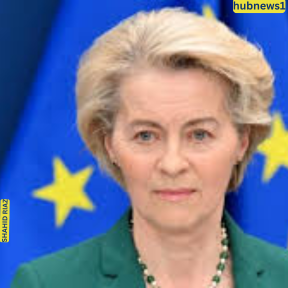
The European Union said that it is shelving retaliatory actions against the United States for 90 days.
“We want to give talks a chance,” EU Commission President Ursula von der Leyen posted on X.
The EU on Wednesday supported its first retaliatory measures against steel and aluminum tariffs Trump had announced in March. Right after the EU finalized its reaction, the US president declared the 90-day delay on the “reciprocal” tariffs he had imposed on dozens of nations.
Von der Leyen further said: “If the negotiations are not satisfactory, our countermeasures will become effective.”
The 27-country bloc had faced three sets of US tariffs: 25% tariffs on aluminum and steel exports, 25% duties on car exports and 20% so-called “reciprocal” tariffs on all other merchandise.
Although the “reciprocal” tariffs were suspended, Trump stated the industry-specific ones would continue to be enforced – along with his 10% flat-rate minimum tariff on all countries.
While Trump’s sudden tariff about-face was welcome news to many in Europe, investors and analysts have cautioned that the erratic, stop-and-start quality of his trade policy will likely chill investment and could decelerate world economic growth.
READ MORE: brooke taylor fox news:Trump-backed bill to stop ‘rogue’ judges passes House
“Clear, predictable conditions are necessary for trade and supply chains to work,” von der Leyen said in a different statement Thursday.
Although the EU “remains committed to constructive negotiations” with the US, the bloc is also interested in “diversifying its trade partnerships, engaging with countries that represent 87% of world trade,” von der Leyen said.
Russia releases US dual national Ksenia Karelina as diplomats meet in Istanbul for embassy talks

Russian-American woman Ksenia Karelina, who had been serving a 12-year prison term for treason in Russia, has been released and is returning to the United States, US Secretary of State Marco Rubio announced on X on Thursday.
“American Ksenia Karelina is on her way home to the United States on a flight. She was unjustly held by Russia for more than a year and President Trump arranged for her freedom,” Rubio tweeted on X.
He further added the president would “continue to work for the release of ALL Americans.”
Karelina’s release was contained in a US-Russia prisoner exchange that also freed Russian-German Arthur Petrov held in US prison, according to two US officials knowledgeable about the issue.
The US-Russia prisoner exchange occurred Thursday in Abu Dhabi and was facilitated by CIA Director John Ratcliffe, the officials added.
The release comes as Russian and US officials resume second-round talks in Istanbul, Turkey.
The US State Department stated Tuesday that the negotiations would center on embassy activities and that “no political or security issues” were on the agenda. “Ukraine is not, absolutely not, on the agenda,” State Department spokeswoman Tammy Bruce said at the time.
“China has long been preparing for this,” economist says, as US trade war escalates

China is settling in for a long trade war with the US and has “long been preparing for this,” according to Keyu Jin, associate professor of economics at the London School of Economics.
“They are in survival mode at the moment,” Jin said in an interview with CNN’s Polo Sandoval on Thursday.
US President Donald Trump suspended all “reciprocal” tariffs, except on key geopolitical competitor China which also unveiled its own retaliatory steps.
Beijing has “fully doubled down on more stimulus, more pivoting to new markets” and is pursuing a “technological innovation push,” Jin said.
“Chinese firms have been launched on a globalization binge,” Jin added. “They’ve changed business models, built new factories and opened up new markets (at) a rate that would’ve been unheard of before.”.
China’s stance – fight to the bitter end if necessary – complements what was expressed that there is no compromising because compromise will only result in more demands on Trump.
Billionaire investor Ray Dalio hopes Trump will also U-turn on China tariffs
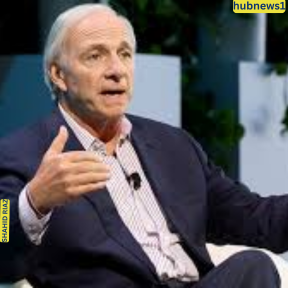
Billionaire investor Ray Dalio complimented Donald Trump for “stepping back” from his intention to apply high tariffs to dozens of nations and hopes the US president follows suit for China.
“This is a wonderful time for all parties to rethink their strategies!” Dalio tweeted on X late Wednesday, after Trump declared a 90-day moratorium on all “reciprocal” tariffs except for those on China.
“There are better and worse ways of dealing with our problems with unsustainable debt and imbalances, and President Trump’s choice to back away from a worse way and negotiate how to address these imbalances is a better way,” Dalio said, going on: “I hope… he will do the same with the Chinese.”
Dalio did not specifically speak of tariffs, but these “imbalances” are the trade deficits the US has with dozens of nations across the globe, which Trump repeatedly stated his tariffs were going to eradicate.
Scrapping China tariffs will entail “negotiating an agreement” that strengthens the renminbi, China’s currency, against the dollar, the investor said, which would be “accomplished by the Chinese selling dollar assets while relaxing their fiscal and monetary policies to stimulate their demand.”
This result would be a “win-win,” Dalio said.
The investor, who has long sounded alarms about the over-indebtedness of the world economy, said:
“There will have to be significant adjustment of the debt/monetary orders to manage the debt, trade and capital imbalances problem.”
China says the door for trade talks with Trump remains open, but the US needs to show respect
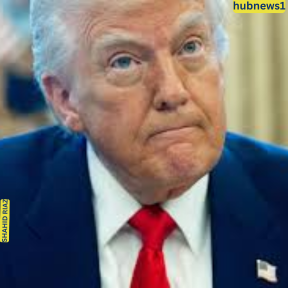
China indicates it still has an open door to talks with the US following President Donald Trump’s increase of tariffs on Chinese imports to 125%.
“The door of dialogue is open, but conversation has to be based on equality and respect,” a Chinese Commerce Ministry spokesperson said Thursday. “We hope the US will meet China halfway, and make efforts to resolve differences through consultation and dialogue.
But the spokesperson also repeated that China will not yield if Trump decides to further intensify the trade war.
“If the US prefers confrontation, China will do the same. Pressure, threats, and blackmail are not the appropriate methods to deal with China.”
The remarks came shortly after Beijing applied retaliatory 84% tariffs on US imports to China.
The Chinese Foreign Ministry was questioned by journalists on Thursday regarding Beijing’s reaction to Trump’s suspension of “reciprocal” tariffs on all nations except China.
Spokesman Lin Jian evaded the question and instead referred to US tariffs as “a flagrant act that violates global condemnation and opposes the whole world.
But even as the government is maintaining a uniformly defiant tone, China’s export industry, a jewel in an otherwise disappointing economy, is preparing for a hit.
READ MORE:President Donald Trump’s inauguration time:How, when and what to watch
investment bank Goldman Sachs expects the US tariffs to “significantly weigh” on China’s economy and labor market. It has cut its GDP growth estimates for 2025 and 2026 to 4.0% and 3.5%, respectively, from earlier predictions of 4.5% and 4.0%.
US and Russian diplomats meet in Istanbul for talks on embassy operations
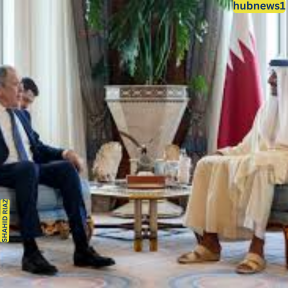
US and Russian diplomats are in negotiations at Russia’s consulate in Istanbul today, Turkish media reported.
The sit-down is the second session of Russia-USA talks in Turkey. The first round was held at the US consulate in Istanbul on February 27 and went on for more than six hours.
The US State Department stated on Tuesday that the negotiations would center on embassy activity and that “no political or security issues” were being considered. “Ukraine is not, absolutely not, on the agenda,” said spokesperson Tammy Bruce at the time.
Russia’s state news agency Tass quoted the Kremlin on Tuesday as saying that the meeting would be “devoted to normalizing the work of the embassies.”.
The bond market is steadying after a sharp sell-off that alarmed Trump
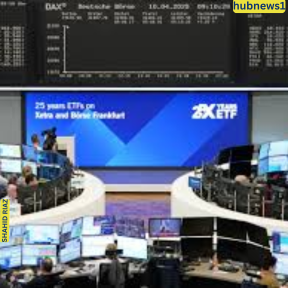
The bond market is bouncing back after US President Donald Trump’s sudden withdrawal from the heavy tariffs he had imposed on a group of nations hours before.
The 10-year Treasury yield, a reference for other debt, dropped to 4.305% on Thursday from a high of 4.5% a day earlier. Only a few days before, it had been trading below 4%. Bond yields move in the opposite direction to their prices.
Why it matters: Trump’s global trade war of tariffs had unleashed a sharp sell-off in the US Treasury market, spooking economists and even the president himself. CNN on Wednesday said that the bond sell-off had been a key reason behind Trump’s decision to delay his “reciprocal” tariffs.
Declining equity prices are normally followed by increasing bond prices and falling bond yields. During periods of market volatility, investors rush to safe assets such as US Treasury bonds, resulting in increased bond prices.
But shockingly, investors were selling stocks and bonds at the same time, CNN’s Allison Morrow reports, causing stock prices to plummet and bond yields to soar. The two occurrences at the same time is extremely rare, with the previous instance being in 2020, when there was a Covid-19 pandemic.
FAQ:
1. What are Dow futures, and why do they matter?
Dow futures are financial contracts that track the expected future value of the Dow Jones Industrial Average (DJIA). They provide insight into market sentiment before U.S. stock markets open, reflecting reactions to news, economic data, or geopolitical events.
2. What is the latest movement in Dow futures?
As of [insert date/time], Dow futures [are up/down/flat] following [specific event, e.g., “a pause in U.S. tariffs”] amid broader market optimism. Check real-time data from financial platforms like Bloomberg or CNBC for updates.
3. How has Trump’s presidency affected markets recently?
Markets rebounded after the Trump administration announced a [tariff pause/trade policy shift], easing investor concerns about trade tensions. Historically, Trump’s policies (tax cuts, deregulation) have boosted equities, while trade wars caused volatility.
4. What caused the rebound in markets?
The rebound was driven by:
- Tariff pause: Reduced fears of escalating trade conflicts.
- Economic data: Strong jobs reports or corporate earnings.
- Political developments: Progress on stimulus talks or foreign relations.
5. Where can I track real-time Dow futures and news?
- Financial news: Bloomberg, CNBC
- Market data: Yahoo Finance, TradingView
- Brokerage platforms: E*TRADE, TD Ameritrade
6. How do tariffs impact the stock market?
Tariffs can hurt companies reliant on imports (raising costs) but may benefit domestic industries. Market reactions depend on scale and retaliation risks. A pause often relieves short-term pressure.
7. What should investors watch next?
- Upcoming policies: New trade deals or stimulus measures.
- Elections: Potential market volatility around political uncertainty.
- Global events: COVID-19 recovery, geopolitical tensions.
dow futures now,dow jones futures,dow futures today,
djia futures,stock futures today,stock futures now,dow jones futures today,cnbc news,pre market trading,market futures,stock market futures today,sensex today,the new york times,china response to trump tariffs,



